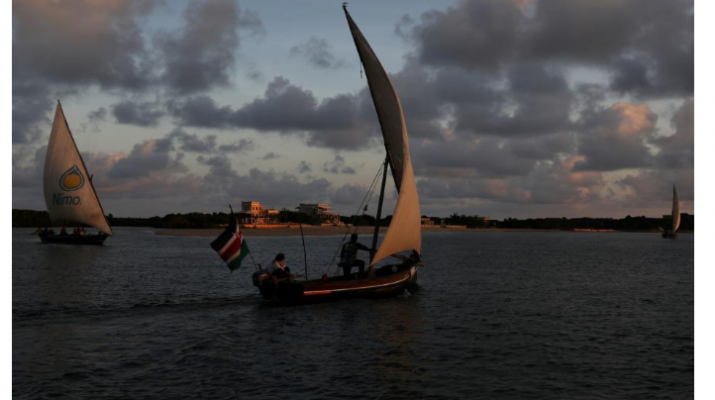Kenya has always been known to be the land of creative people and that explains why we have the most prolific meme creators ever, but who could have imagined a boat made out of plastic waste?
When a resident organized a beach clean-up that collected 33 tons of rubbish in a single summer, British-Ethiopian safari organizer Ben Morrison decided he couldn’t stand by while his beloved island was ruined.
So he decided to try to design a traditional dhow, or sailing boat, from recycled plastic, offering a market to those recycling and persuading locals to conserve shrinking woodland.
“It is getting harder and harder for boat builders to find wood. I hope that this project will allow the ancient skills of boat building to live on, by shifting from ever-scarce wood to plastic,” said Morrison.
Plastic pollution is a growing global problem, with patches of sea larger than some countries covered in plastic soup that strangles or poisons wildlife. The U.N. says by 2050, there will be more plastic in the ocean than fish unless drastic action is taken.
In August, Kenya introduced one of the world’s toughest bans on plastic bags mandating four years in prison or a fine of $40,000 for even using one.
Morrison, working with eight expert Kenyan boat builders, is using plastic planks from the fledgling local recycling industry to build his boat, which he hopes to sail to Cape Town in South Africa.
“We struggle to produce a consistent material out of the recycled plastic,” he said. “It’s not easy. Sometimes we receive plastic planks from the factory that are full of air bubbles. We can’t build with them and so we have to start from the beginning again.”
Ali Skanda, a 44-year-old master boat builder, said in his childhood there was no litter on Lamu’s sandy golden beaches – just fishermen, dhows and donkeys. Now many donkeys are dying from eating plastic, he said – and so are turtles, cows and other animals.
“At the beginning I thought it was a crazy idea. How could I build a boat out of plastic?” he asked. “Some people have been asking what we can do about this problem. There is so much plastic scattered. This is something we can do.”

